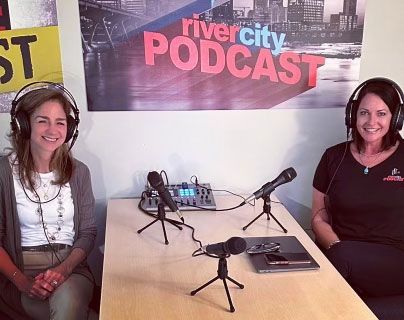Onsite VS Offsite SEO is like comparing apples and oranges... but they are both good for you

So which SEO Strategy Should You Focus on?
In the ever-evolving landscape of search engine optimization (SEO), it's crucial for businesses and website owners to understand the importance of both onsite and offsite optimization strategies. While onsite SEO focuses on optimizing your website's content and structure, offsite SEO involves building external factors to improve your website's visibility. In this blog post, we'll explore the key differences between onsite and offsite SEO and help you determine which strategy to prioritize for your online success.
Onsite SEO
1. Onsite SEO, also known as on-page SEO, involves optimizing various elements within your website to improve its search engine rankings. Here are some essential factors to consider:
a) Content Optimization: Creating high-quality, relevant, and keyword-rich content is vital for onsite SEO. Focus on proper keyword research, keyword placement, and structuring your content for easy readability.
b) Meta Tags and Descriptions: Optimizing meta tags (title tags and meta descriptions) helps search engines understand your content better. Make sure to include relevant keywords and concise, compelling descriptions.
c) URL Structure and Internal Linking: A well-structured URL and strategic internal linking can enhance user experience and make it easier for search engines to crawl and index your site.
To get pricing and learn more about River City Consulting’s content creation and Onsite SEO Services, contact us.
Offsite SEO
2. Offsite SEO, also referred to as off-page SEO, involves optimizing factors outside of your website to improve its visibility and credibility. Here are some key elements of offsite SEO:
a) Link Building: Building high-quality backlinks from authoritative and relevant websites is crucial for offsite SEO. Focus on creating valuable content that naturally attracts links from other websites.
b) Social Media Engagement: Active participation on social media platforms can help increase brand visibility, generate social signals, and attract potential backlinks.
c) Online Reputation Management: Monitoring and managing your online reputation is vital for offsite SEO. Encourage positive reviews and address any negative feedback promptly to maintain a strong online presence.
d) Citations and Search: for example, Google Business Profile (GBP) optimization and management helps to boost visibility and rankings.
For Offsite SEO Services in Richmond VA, we partner with Third Marble Marketing.
Choosing the Right Strategy
3. Determining whether to focus more on onsite or offsite SEO depends on various factors, including your website's current state, competition level, and goals. Here are a few considerations to guide your decision:
a) New Websites: If you have a new website, focusing on onsite SEO initially is crucial. Create high-quality content, optimize meta tags, and ensure your site structure is user-friendly.
b) Established Websites: If your website already has a solid foundation, investing in offsite SEO strategies like link building and social media engagement can provide a significant boost to your search rankings.
c) Balanced Approach: In reality, a balanced approach that combines both onsite and offsite SEO is often the most effective strategy. Prioritize onsite optimization to ensure a strong foundation, and then invest in offsite efforts to build authority and increase visibility.
Conclusion
Both onsite and offsite SEO strategies play critical roles in improving your website's search engine rankings and driving organic traffic. By understanding the key differences between the two approaches and considering your specific goals, you can develop a comprehensive SEO strategy that maximizes your online presence and helps you achieve long-term success. Remember, SEO is an ongoing process, so continuous monitoring, analysis, and adaptation are essential for staying ahead in the ever-changing digital landscape.













